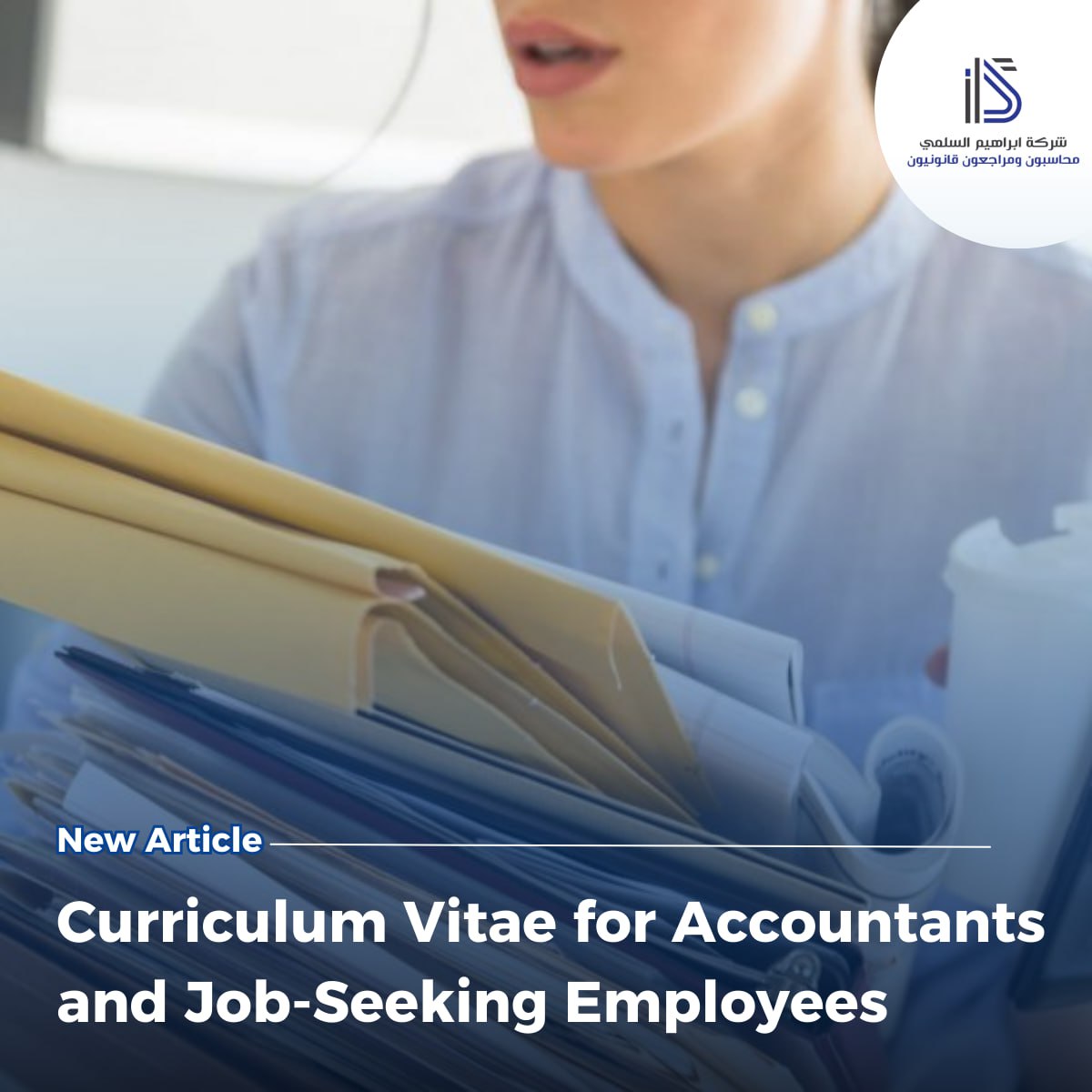Curriculum Vitae for Accountants and Job-Seeking Employees: Key to Success in the Job Search Journey
Introduction Job hunting is a journey filled with challenges, especially with the increasing competition in the job market. Therefore, a CV plays an essential role in highlighting your skills, experience, and competence to attract the attention of potential employers.
CV for Accountants A CV for accountants is a crucial document that highlights their skills and experience in financial and accounting fields.
Tips for Writing a Strong CV for Accountants
- Focus on Relevant Skills and Experience: Identify your skills and experiences that match the job requirements.
- Use Numbers to Show Achievements: Replace general statements with numbers that show the impact of your achievements on companies.
- Highlight Certifications and Training: List all the certifications and training courses you have completed in accounting.
- Ensure Linguistic Accuracy: Make sure your CV is free of linguistic and spelling errors.
CV for Job-Seeking Employees A CV for job-seeking employees is a document that highlights their skills and experience in various fields.
Tips for Writing a Strong CV for Job-Seeking Employees
- Define Your Career Objective: Clearly define the career objective you aim to achieve with this job.
- Highlight Core and Transferable Skills: Include your core and transferable skills that enable you to succeed in any job.
- Customize Your CV for Each Job: Tailor your CV for each job, considering the required skills and experience for that job.
- Use Keywords: Use keywords from the job advertisement in your CV to increase your chances of passing electronic tracking systems.
Impact of the CV in Employee Selection The CV plays a significant role in an employer’s selection of the suitable candidate by:
- Initial Candidate Screening: Helping in the initial screening of candidates to determine the most qualified for the job.
- Skills and Experience Evaluation: Providing the employer with a general overview of your skills, experience, and competence.
- Predicting Employee Performance: Helping the employer form expectations about the employee’s future performance.
General Tips for Writing a Strong CV
- Use a Clear and Easy-to-Read Format: Use a clear and easy-to-read format to make your CV attractive and easy to understand.
- Keep the CV Length Appropriate: Do not make your CV longer than two pages.
- Observe Language and Spelling Rules: Ensure your CV is free of linguistic and spelling errors.
Conclusion Writing a strong CV is the key to success in the job search journey. By following the tips mentioned in this article, you can write a CV that highlights your skills, experience, and competence, attracting the attention of potential employers.
Additional Tips
- Regularly Update Your CV: Periodically update your CV to ensure it includes your latest skills and experiences.
- Ask a Trusted Person to Review Your CV: Have a trusted person like a friend or colleague review your CV and provide feedback.
- Be Prepared to Discuss Your CV in an Interview: Be ready to discuss your CV in a job interview, focusing on your skills, experience, and achievements.
Best wishes on your job search journey!
https://drive.google.com/drive/folders/1z-qLZe7UafG12zf3jOpXoVCK0rS4a5oy?usp=drive_link
